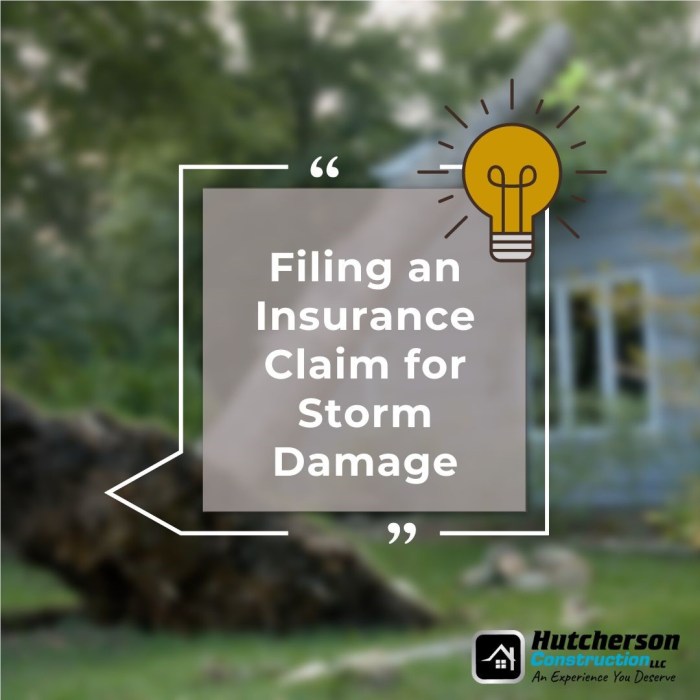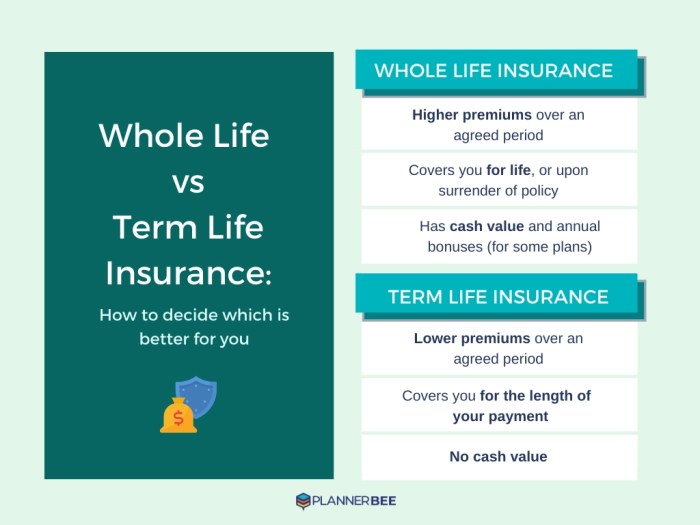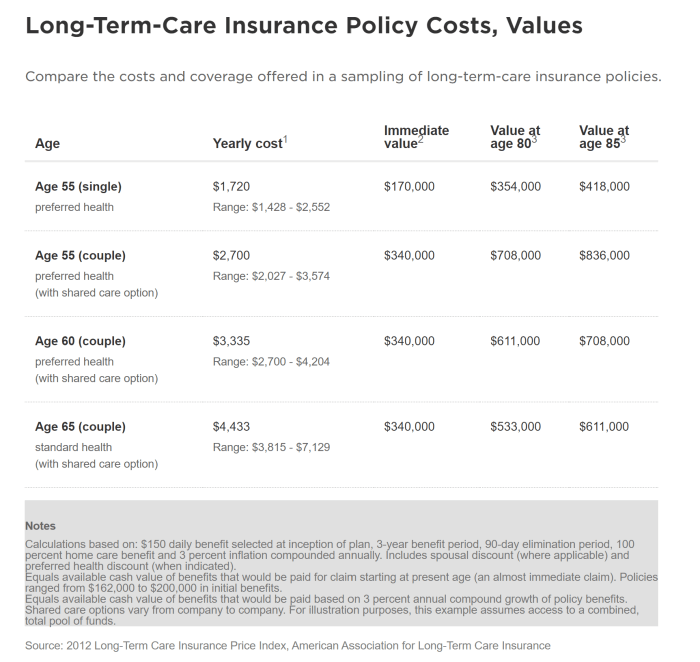Understanding the Search Intent

The search query “car accident insurance lawyer near me” reveals a person in a state of distress and uncertainty, seeking immediate legal assistance. Understanding the nuances behind this seemingly simple search is crucial for effectively reaching those in need. This search reflects a convergence of emotional turmoil, legal vulnerability, and the practical need for localized expertise.The motivations behind this search are multifaceted and often intertwined.
It’s not simply a matter of finding a lawyer; it’s about finding the right lawyer at the right time, in a moment of significant personal crisis.
Motivations Behind the Search
Individuals searching for “car accident insurance lawyer near me” are driven by a combination of factors. Primarily, they are seeking legal representation to navigate the complexities of an insurance claim following a car accident. This might stem from a belief that their insurance company is not acting fairly, or a lack of understanding of their rights and entitlements. They may also be concerned about medical bills, lost wages, and property damage.
Furthermore, the search for a “near me” option underscores the urgency and immediate need for local expertise and accessibility. The proximity to their location is a key factor in their decision-making process, highlighting the stressful situation they are facing and their need for swift action.
Stages of Need
The search query often reflects different stages of need within the accident recovery process. Some individuals may be in the immediate aftermath of the accident, still experiencing shock and injury, urgently needing legal guidance. Others may be further along, having already engaged with their insurance company but feeling frustrated or dissatisfied with the process. A third group may be seeking legal counsel to review a settlement offer or prepare for litigation.
The timing of the search, therefore, is a critical indicator of the individual’s current situation and level of urgency.
User Scenarios
Several scenarios could lead to this search query. For instance, a person involved in a minor fender bender, initially believing the damage was minimal, might later discover significant hidden damage requiring extensive repairs, exceeding their insurance coverage. Another scenario involves a serious accident with injuries, leaving the individual overwhelmed by medical bills and the complex process of filing an insurance claim.
A third scenario might involve an accident where the other driver was at fault, but their insurance company is disputing liability, leaving the individual feeling helpless and frustrated. These diverse scenarios all share a common thread: the need for a local, experienced car accident attorney to advocate on their behalf.
User Persona: Sarah Miller
Let’s consider a user persona: Sarah Miller, a 38-year-old single mother of two living in suburban Chicago. She was recently involved in a car accident where she sustained a whiplash injury and her car was totaled. Her insurance company is offering a settlement she feels is insufficient to cover her medical bills and lost wages. Sarah is feeling overwhelmed, anxious, and financially stressed.
She is searching “car accident insurance lawyer near me” on her phone while trying to juggle childcare and work responsibilities. Her emotional state is a mixture of fear, anger, and desperation, fueling her urgent need to find a lawyer she can trust to fight for her rights.
Locating Relevant Lawyers
Finding the right legal representation after a car accident is crucial for protecting your rights and pursuing fair compensation. The process of locating qualified lawyers specializing in car accidents within your specific geographic area requires careful consideration and a multi-pronged approach. This involves understanding different search methods, evaluating lawyer credentials, and critically assessing online resources.Finding qualified legal help is a journey, much like the path to righteousness – it requires diligence and discernment.
Just as a shepherd carefully tends his flock, so too must you carefully select your advocate.
Methods for Locating Car Accident Lawyers
Several effective methods exist for identifying lawyers specializing in car accident cases within a specific geographic area. Directly searching online using terms like “car accident lawyer [your city/state]” is a common starting point. Leveraging professional referral services, such as those provided by bar associations or legal aid organizations, can also yield promising results. Additionally, seeking recommendations from trusted sources like friends, family, or your primary care physician can uncover hidden gems of legal expertise.
Networking within your community, particularly if you have connections to individuals who have previously navigated similar legal situations, can provide valuable insights and personalized referrals.
Importance of Lawyer Licensing and Qualifications
Verifying a lawyer’s licensing and qualifications is paramount. Ensuring that a lawyer is licensed to practice law in your state is a fundamental step, protecting you from potential legal issues. Beyond licensure, investigating a lawyer’s experience in handling car accident cases, their success rate in similar cases, and their familiarity with relevant state laws is crucial. Just as a skilled craftsman meticulously hones their tools, a seasoned car accident lawyer possesses the refined expertise needed to navigate the complexities of such cases effectively.
Consider their experience in negotiation, litigation, and arbitration. Look for evidence of specialization through certifications, memberships in professional organizations, or a demonstrable track record of success in handling cases similar to yours.
Comparison of Online Resources for Locating Lawyers
Various online platforms facilitate the search for lawyers. Each resource offers a unique set of features and reliability levels. Lawyer directories often provide comprehensive listings, including lawyer profiles, contact information, and practice areas. Review sites, conversely, emphasize user feedback and ratings, offering a glimpse into client experiences. Both resources, however, require careful evaluation to avoid misleading information or inaccurate reviews.
Consider using a combination of resources to form a holistic understanding of a lawyer’s qualifications and reputation.
Online Lawyer Directory Comparison
| Directory Name | Features | Reliability Rating (1-5, 5 being highest) | User Reviews (Example) |
|---|---|---|---|
| Avvo | Lawyer profiles, ratings, client reviews, practice area filters, and legal articles. | 4 | “Excellent communication and very helpful throughout the process.” |
| FindLaw | Extensive lawyer directory, detailed profiles, legal resources, and case results summaries. | 4 | “They kept me informed every step of the way and achieved a great settlement.” |
| Martindale-Hubbell | Lawyer profiles with peer reviews, ratings, and disciplinary information. | 5 | “Professional, knowledgeable, and dedicated to achieving the best possible outcome.” |
Evaluating Lawyer Credentials
Choosing the right car accident lawyer is a crucial step in seeking justice and fair compensation. This decision should not be taken lightly, as the lawyer’s expertise and dedication significantly impact the outcome of your case. Thorough evaluation of their credentials is paramount.Evaluating a car accident lawyer’s credentials requires a multifaceted approach, going beyond simple online searches. It involves understanding their experience, analyzing their success rate, and assessing their communication style and commitment to their clients.
This process ensures you select a lawyer who aligns with your needs and increases your chances of a positive outcome.
Lawyer Experience and Success Rate
A lawyer’s experience directly correlates with their knowledge and skill in handling car accident cases. Years of practice specializing in personal injury law, particularly car accidents, are a strong indicator of competence. Look for lawyers with a proven track record of successfully resolving similar cases. While a high win rate is desirable, it’s crucial to consider the complexity and variety of cases handled.
A lawyer specializing in complex cases might have a lower win rate than one focusing on simpler cases, but their expertise could be more valuable for intricate situations. The lawyer’s experience with insurance companies and their negotiation strategies are also critical factors. A seasoned lawyer will understand the tactics employed by insurance adjusters and can effectively counter them.
For example, a lawyer with twenty years of experience in successfully negotiating settlements with major insurance companies would be considered highly experienced.
Client Testimonials and Reviews
Client testimonials and reviews offer valuable insights into a lawyer’s performance and client interaction. These provide a firsthand account of the lawyer’s professionalism, communication skills, and overall effectiveness. Websites like Avvo, Yelp, and Google My Business often host client reviews. It’s important to read a range of reviews, not just the positive ones, to get a balanced perspective.
Look for consistent themes in the reviews, such as responsiveness, empathy, and successful case outcomes. For example, consistent positive feedback regarding a lawyer’s accessibility and willingness to explain complex legal matters would be a positive sign. Conversely, numerous complaints about poor communication or lack of responsiveness should raise concerns.
Essential Questions for Consultation
Before committing to a lawyer, schedule a consultation to ask crucial questions. This interaction allows you to assess their suitability and determine if their approach aligns with your expectations.
It is important to ascertain the lawyer’s fee structure, their experience handling cases similar to yours, and their strategy for achieving a favorable outcome. Asking about their communication protocols ensures you’ll be kept informed throughout the process. Inquiring about their success rate in similar cases provides a measure of their effectiveness. Finally, clarifying their contingency fee agreement, if applicable, ensures transparency in the financial arrangement.
Interpreting Lawyer Profiles and Websites
Lawyer profiles and websites provide a wealth of information about their credentials and experience. Examine their education, professional affiliations, and awards to gauge their qualifications. Pay close attention to the types of cases they handle and their stated areas of expertise. A website showcasing successful case results and detailed descriptions of their legal services is a positive indicator.
For example, a lawyer’s website featuring client testimonials, a detailed explanation of their legal process, and a list of successful settlements would demonstrate transparency and competence. Conversely, a poorly designed website with limited information could suggest a lack of professionalism or attention to detail.
Understanding Insurance Claims Process: Car Accident Insurance Lawyer Near Me
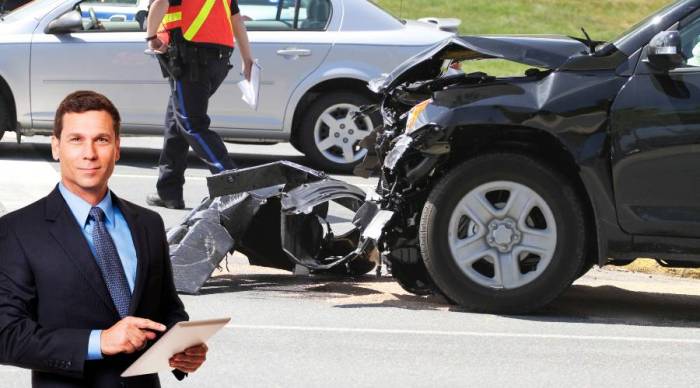
Navigating the complexities of an insurance claim after a car accident can feel like traversing a thorny wilderness. However, understanding the process and having the right guidance can significantly ease the burden and help you secure the compensation you deserve. This section provides a clear path through the insurance claims process, illuminating the steps involved and the crucial role a lawyer can play.
The Typical Steps in Filing a Car Accident Insurance Claim
Filing a car accident insurance claim involves several key steps. First, you must report the accident to your insurance company promptly. This typically involves providing details about the accident, including the date, time, location, and involved parties. Next, you will need to gather all relevant documentation, such as police reports, medical records, and photos of the damage. Submitting a formal claim, which includes a detailed account of the accident and the extent of your injuries and damages, follows.
Your insurer will then investigate the claim, potentially requiring additional information or documentation. Finally, once the investigation is complete, the insurance company will make a decision on your claim, which may involve settlement negotiations.
Navigating the Claims Process with an Attorney’s Assistance
An attorney can be invaluable in guiding you through each step of the claims process. They can assist in gathering and organizing necessary documentation, ensuring that all information is accurately and comprehensively presented to the insurance company. Furthermore, a lawyer can negotiate with the insurance company on your behalf, advocating for a fair and just settlement. They can identify and address any potential complications or disputes, and represent you in court if necessary.
Their expertise ensures you receive the maximum compensation you are entitled to under the policy. Consider an attorney your guide through a potentially treacherous landscape.
Types of Insurance Coverage Relevant to Car Accidents
Several types of insurance coverage can apply after a car accident. Liability coverage pays for damages caused to others if you are at fault. Collision coverage covers damages to your vehicle regardless of fault. Comprehensive coverage protects against damage from events like theft, vandalism, or natural disasters. Uninsured/underinsured motorist coverage protects you if you are involved in an accident with an uninsured or underinsured driver.
Personal injury protection (PIP) coverage may pay for your medical expenses and lost wages regardless of fault. Understanding these coverages is crucial in determining your available benefits.
Common Complications in Insurance Claims and Lawyer Assistance
Insurance claims can be fraught with complications. For instance, disputes over liability, the value of damages, or the extent of injuries are common. Insurance companies may try to undervalue your claim or deny it altogether. A lawyer can help resolve these issues by providing expert legal advice, negotiating a fair settlement, and, if necessary, filing a lawsuit to protect your rights.
They can also help to navigate complex legal terminology and procedures. For example, an insurance company might claim that your injuries are pre-existing, thus reducing your compensation. A lawyer can present counter-evidence, such as medical records and expert testimony, to refute these claims. Another common complication involves disagreements on property damage assessment. A lawyer can engage independent assessors to provide an unbiased valuation, strengthening your negotiation position.
Legal Aspects of Car Accidents
Navigating the legal landscape after a car accident can feel like traversing a treacherous path. Understanding the underlying principles of liability and the various avenues for seeking compensation is crucial for a just outcome. This section will illuminate the legal framework governing car accidents, shedding light on liability, damages, and legal strategies.
Determining Liability in Car Accidents
Liability in car accidents hinges on the principle of negligence. To establish negligence, one must prove that the at-fault driver owed a duty of care to the injured party, breached that duty, and that breach directly caused the accident and resulting injuries. Comparative negligence, a common legal doctrine, apportions fault between multiple parties involved, reducing the compensation awarded to the injured party based on their degree of fault.
For instance, if a driver runs a red light and collides with another car, but the second driver was also speeding, the court may find both drivers partially at fault, reducing the compensation awarded to the driver who ran the red light. Strict liability exceptions exist, such as cases involving defective vehicle parts, where fault isn’t directly assigned to a driver’s actions.
Types of Damages in Car Accident Lawsuits
Car accident lawsuits can encompass a broad range of damages. Economic damages are readily quantifiable, including medical expenses (hospital bills, therapy, future medical care), lost wages, and property damage repair costs. Non-economic damages, often harder to quantify, include pain and suffering, emotional distress, loss of consortium (loss of companionship), and diminished quality of life. Punitive damages, designed to punish the at-fault party for reckless or intentional behavior, may be awarded in extreme cases of negligence or gross misconduct, such as drunk driving resulting in severe injury.
For example, a plaintiff might claim economic damages for medical bills totaling $50,000 and lost wages of $20,000, alongside non-economic damages for pain and suffering, potentially valued by a jury at a much higher figure depending on the severity and duration of the injuries.
Legal Strategies for Pursuing a Car Accident Claim
Several legal strategies exist for pursuing a car accident claim. Negotiation with the insurance company is often the first step, aiming for a fair settlement without litigation. If negotiation fails, filing a lawsuit becomes necessary. In litigation, the plaintiff’s attorney presents evidence, witness testimonies, and expert opinions to support their claim. The defendant’s attorney will counter these arguments.
The case may proceed to trial, where a judge or jury determines liability and damages. Alternatively, mediation or arbitration can provide alternative dispute resolution mechanisms to avoid a full trial. The choice of strategy depends on the specifics of the case, the strength of the evidence, and the client’s goals. A high-value claim with strong evidence might warrant pursuing litigation, while a smaller claim with less compelling evidence might be best resolved through negotiation.
Flowchart Illustrating the Legal Process
A simplified flowchart illustrating the legal process after a car accident could be visualized as follows:Accident Occurs –> Police Report Filed –> Medical Treatment Sought –> Insurance Claim Filed –> Negotiation with Insurance Company –> Settlement Reached (Case Closed) OR Lawsuit Filed –> Discovery Phase (evidence gathering) –> Mediation/Arbitration (Optional) –> Trial –> Judgment/Settlement –> Case Closed. This flowchart illustrates the basic steps, and the actual process can vary significantly based on individual circumstances and legal complexities.
The branching pathways represent the different potential outcomes at each stage.
Client-Lawyer Communication
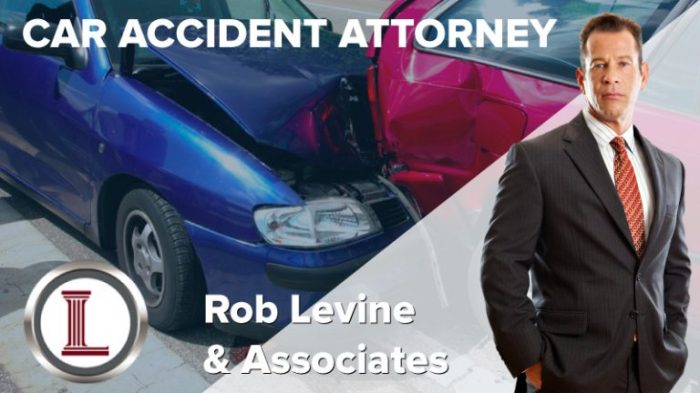
Open and honest communication forms the bedrock of a successful attorney-client relationship, particularly in the stressful context of a car accident claim. Effective communication ensures that your lawyer understands your needs, and you understand the complexities of your case. This understanding fosters trust and ultimately improves the chances of a favorable outcome.Effective communication strategies between clients and their car accident lawyers involve a multifaceted approach encompassing regular updates, proactive inquiries, and a mutual commitment to transparency.
This involves both the lawyer providing clear and consistent information and the client actively participating in the process by asking clarifying questions and providing all relevant details promptly.
Effective Communication Strategies
Maintaining open communication channels is crucial. This could involve scheduled phone calls, email exchanges, or even in-person meetings, depending on the complexity of the case and client preference. The lawyer should clearly explain legal procedures, potential outcomes, and the timeline of the case. The client, in turn, should promptly respond to requests for information and keep the lawyer updated on any relevant developments.
For example, if the client experiences a change in their medical condition, they should immediately notify their lawyer.
Importance of Clear and Consistent Updates from the Lawyer
Regular updates are paramount to alleviate client anxiety and maintain trust. These updates should not only cover the progress of the case but also address any procedural delays or unexpected developments. A lawyer who consistently keeps the client informed demonstrates professionalism and commitment, fostering a strong working relationship. For instance, a timely update on the status of an insurance claim or a court date ensures the client feels involved and informed throughout the process.
A lack of communication, on the other hand, can lead to mistrust and frustration.
Best Practices for Clients to Maintain Effective Communication
Maintaining effective communication requires proactive engagement from both parties. Here’s a list of best practices for clients:
- Maintain a detailed record of all communication, including dates, times, and summaries of conversations.
- Promptly respond to all communication from your lawyer.
- Ask clarifying questions if you don’t understand something.
- Keep your lawyer informed of any changes in your circumstances.
- Provide all requested documentation in a timely manner.
Prompt responses and thorough documentation are essential for ensuring a smooth and efficient legal process. Failing to provide requested documents, for instance, can lead to significant delays in the case. Similarly, ignoring communications from the lawyer can create misunderstandings and hinder the progress of the case.
Potential Communication Barriers and Solutions
Several barriers can impede effective communication. Language barriers can be addressed by utilizing translation services or interpreters. Differences in communication styles can be overcome through clear and concise communication, focusing on active listening and seeking clarification when needed. A lack of technological access can be addressed by scheduling phone calls or in-person meetings, adapting to the client’s preferences and technological capabilities.
For example, if a client has limited English proficiency, the lawyer should arrange for a translator to ensure clear communication. Similarly, if a client prefers email communication, the lawyer should respect this preference.
Illustrative Case Studies
This section presents two fictional case studies to illustrate the complexities and potential outcomes of car accident claims. These examples are for illustrative purposes only and should not be considered legal advice. Each case highlights different aspects of the legal process and the importance of seeking professional legal representation.
Successful Car Accident Claim: The Case of Ms. Elena Ramirez, Car accident insurance lawyer near me
Ms. Elena Ramirez was stopped at a red light when she was rear-ended by Mr. David Lee, who had failed to brake in time. The impact caused significant damage to Ms. Ramirez’s vehicle, including a severely damaged rear bumper, crushed tail lights, and a dented trunk.
Ms. Ramirez suffered a whiplash injury, resulting in persistent neck pain, headaches, and limited range of motion. Medical bills totaled $15,000, and she missed three weeks of work, resulting in a loss of income of $4,500. Her vehicle required $8,000 in repairs.Our firm represented Ms. Ramirez.
We gathered evidence, including police reports, photographs of the accident scene and vehicle damage, medical records documenting her injuries, and pay stubs showing her lost wages. We argued that Mr. Lee’s negligence directly caused Ms. Ramirez’s injuries and damages. Mr.
Lee’s insurance company initially offered a low settlement, but our firm negotiated a settlement of $30,000, covering all medical expenses, lost wages, and vehicle repair costs. This settlement successfully compensated Ms. Ramirez for her pain, suffering, and financial losses. The case demonstrated the importance of meticulous evidence gathering and strong negotiation skills in securing a favorable outcome.
Complex Car Accident Claim: The Case of the Multi-Vehicle Collision
A three-car collision occurred at a busy intersection. Ms. Sarah Chen was stopped at a red light when Mr. John Smith, driving a truck, rear-ended her vehicle. The impact propelled Ms.
Chen’s car into the vehicle in front of her, driven by Mr. Robert Brown. All three drivers sustained injuries, and all three vehicles were significantly damaged. Mr. Smith’s insurance company claimed that Ms.
Chen was partially at fault for the accident, arguing that she had failed to maintain a safe following distance. Mr. Brown’s insurance company also pointed fingers at Ms. Chen and Mr. Smith.This case presented significant challenges.
We had to meticulously analyze the accident reconstruction report, witness statements, and police reports to determine the degree of fault for each driver. We used expert testimony from a traffic accident reconstructionist to demonstrate that Mr. Smith was primarily at fault for causing the initial collision. We also argued that Ms. Chen and Mr.
Brown were not negligent and that their injuries were a direct result of Mr. Smith’s actions. After extensive negotiations and preparations for trial, we successfully secured settlements for all three clients, with Mr. Smith’s insurance company bearing the majority of the financial responsibility. The case underscored the importance of thorough investigation and expert analysis in navigating complex, multi-party car accident claims.

